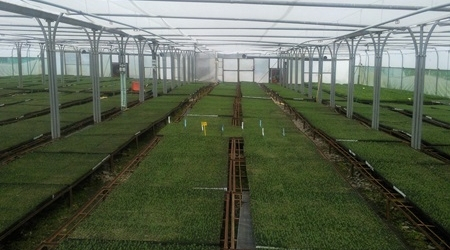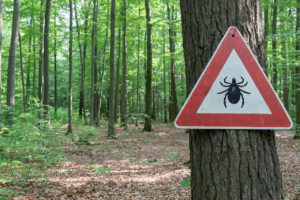EU Referendum: What implications would Brexit have on the nursery sector?
 In the run-up to the June EU referendum, the Institute is examining the range of implications for the forestry and arboriculture sector. Here Matt Hommel MICFor, Managing Director of Christie-Elite Nurseries Ltd, looks at the potential impact of Brexit on UK nurseries.
In the run-up to the June EU referendum, the Institute is examining the range of implications for the forestry and arboriculture sector. Here Matt Hommel MICFor, Managing Director of Christie-Elite Nurseries Ltd, looks at the potential impact of Brexit on UK nurseries.
I must admit, the first thought that occurs to me whenever Brexit (Britain’s potential exit from Europe) is mentioned is a general feeling that there will be less money about. This concern probably has no basis in fact; as a net contributor to the EU, the national pot should be significantly swelled and with forestry increasing in importance to the modern world it ought to be relatively straight forward to justify its continued support. The impact therefore of the sudden loss of forestry co-funding in relation to tree planting could be lessened or completely diluted provided the overall pot is not eroded – why then does the prospect make me nervous?
The second over-simplistic assumption that I always make is to synonymise Europe with bureaucracy. It follows that if we are no longer beholden to the vagaries and administrative complexities stipulated by Brussels then the process of applying, processing and approving planting grant applications (or anything for that matter) ought to become much simpler and faster. This is particularly pertinent since the ever increasing complexity of applying for grant has this year reached the stage where the whole system is untenable; planting is just not happening and our business has sustained damage as a result. In this respect at least, with the current lack of planting, surely an exit from Europe would be desirable for any nursery business. At least a streamlined administrative process can’t make it any worse can it?

Another potential positive exists in the context of tree health. Being part of the single market severely limits the possible actions an individual member state can take in terms of restricting or excluding products. In the case of ash dieback the desirable outcome was an import ban however due to trade sensitivities this was not possible and instead a movement ban was introduced. The former approach would not have affected Christie-Elite in the slightest however the latter has forced destruction of almost 100K home grown ash annually since the ban was introduced. A separation from Europe would allow the UK to take a much firmer stance on the management of imported plant material. As one of the UK’s largest tree growers any pressure which favours the use of home-grown material would be of benefit not to mention reducing the future risk of disease….wouldn’t’ it?
On the face of it leaving Europe appears to have some positives, but I can’t help feel that the unforeseen consequences will affect us much more profoundly that those I can foresee.
In the end, for us it comes down to this: the UK forest nursery sector remains under constant threat from distortions in the market, at risks from factors beyond our control. If Junes vote results in favour of Britain’s exit, notwithstanding the future benefits, a period of uncertainty and administrative turmoil will be created. Trees are a long-term investment and the biggest fear for nurseries is anything that creates short-term uncertainty.
Members can have their say on all our blogs by visiting the ICF Members LinkedIn discussion group.





